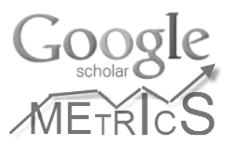Records and Repositories: A brief text for PhD Students
Abstract
Abstract
This brief editorial tries to make known the main research records and repositories, with the aim of being known and used early on by PhD students. It raises the importance of using the ORCID author’s ID and knowledge of other key records of the editorial process among which are the ISSN, the DOI and the ROR, referring to the journal, the document and the institution, respectively. Subsequently, the main databases whose primary function is as an academic search engine (Scopus, Web of Science, Dimensions and Google Scholar) are described. The main academic social networking sites are then described (ResearchGate and Academia.edu), finishing with the main characteristics of the Sci-Hub case. It concludes by mentioning the relevance of integrating all these digital platforms to open PhD students up to the digital world and with it a series of possibilities for exchanges.
Keywords: PhD Students, records, repositories, ORCID, ISSN, DOI, ROR, Scopus, WoS, Dimensions, Google Scholar, ResearchGate, Academia.edu, ASNS, Sci-Hub.
Downloads
How to Cite
Issue
Section
License
Articles published in this journal are protected under the Creative Commons Attribution-NonCommercial-ShareAlike 4.0 International (CC BY-NC-SA 4.0) license. This means that authors retain full rights over their research and publications at all times. As a journal, we fully respect and promote the principles of open access established by this license, allowing the work to be shared, adapted, and distributed for non-commercial purposes, provided that appropriate credit is given to the authors and any derivative works are licensed under the same terms.
Authors are responsible for obtaining the required permission when they wish to reproduce part of the material (figures, etc.) from other publications.
Likewise, CNPs allows authors to host in their personal sites or other repositories that they deem convenient the Final and Definitive Version of the published article with the format assigned by the journal. In no case do we allow access to preprints of the article under evaluation or already published.
When submitting an article to CNPs you are aware that all the contents of CNPs are under a Creative Commons License. In which it is allowed to copy and share the contents freely, always making reference to the origin of the publication and its author.













